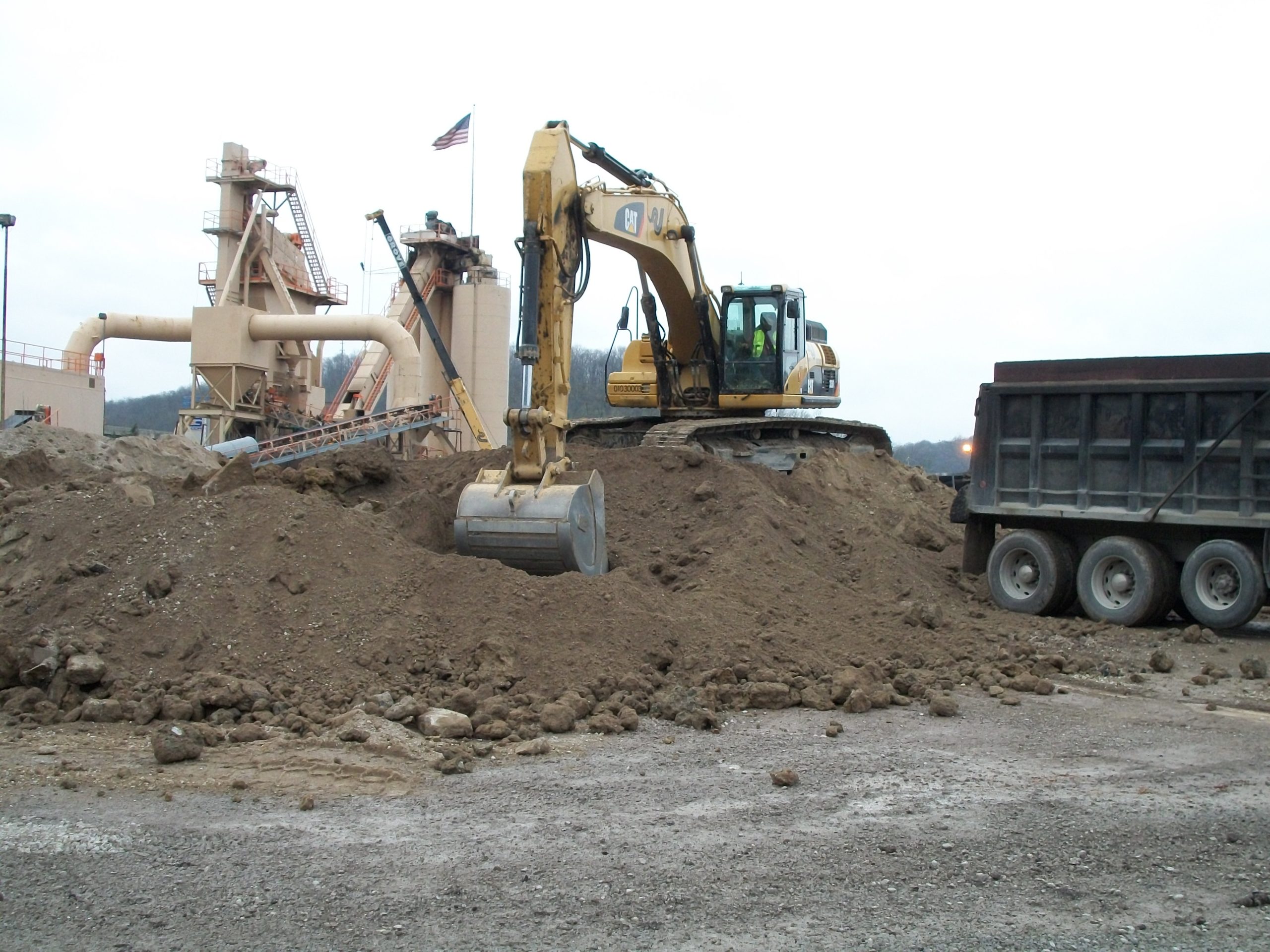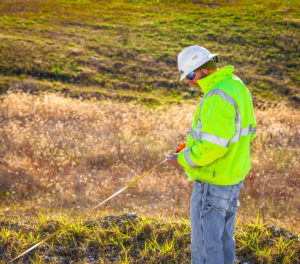Parking Lot Paving & Repair
Make a great first impression on your customers with an asphalt parking lot. Trust the parking lot paving experts at Eaton Asphalt.
Parking Lot Paving
Properly executed parking lot paving can make a great first impression on your customers. If your commercial parking lot has pot holes, cracks, or storm water management issues it is time to call the professionals at Eaton Asphalt. We are your professional asphalt paving contractors in Northern Kentucky here to help you find the appropriate repair solution.
At Eaton Asphalt, we are proud to work with businesses of all sizes to find the best asphalt paving solutions to meet their needs. Parking lot services include:
- Sub-grade surface evaluation and installation
- Re-paving and grading
- Proper storm water management and drainage
- Green asphalt solutions
With over 100 years of asphalt paving experience, from highways to parking lots, Eaton Asphalt is your local source for all of your asphalt paving needs. Offering professional paving services from Bracken, Boone, Carroll, Campbell, Gallatin, Grant, Kenton, Lewis, Mason, Owen, Pendleton and Robertson counties, as well as all cities in the NKY (Northern Kentucky) area.
Parking Lot Asphalt Mixture Design
Asphalt pavements are made up of three primary components:
- Aggregates
- Liquid Asphalt Binder
- Air
The asphalt binder acts as the binding agent to glue aggregate particles into a dense mass and to waterproof the mix. When bonded together, the mineral aggregate acts as a stone framework to add strength and durability to the system. Asphalt mixtures also include a small percentage of air voids which are necessary for pavement durability and flexibility. The performance of the mixture is affected both by the properties of the individual components and their combined reaction in the system.
Parking lots are much different than roadways because vehicles are not traveling at high speeds and are far more likely to experience more turning movements. Because of these differences, care must be exercised when designing parking lot mixtures utilizing KYTC mixtures and specifications. Parking lots may experience oxidation, aging, tire scrubbing, and some brittleness not often seen on heavily traveled roadways and must be designed accordingly. Generally speaking, asphalt mixtures utilized in parking lots should be higher in total liquid asphalt content than a similarly traveled roadway.
Liquid Asphalt Binder
In most cases, the grade of binder is specified by an engineer. This is based on the climate and level of traffic for the particular application.

Aggregates
A wide variety of mineral aggregates are used to produce asphalt pavements. Kentucky is fortunate to have roughly 120 quarry operations. Most of these quarries produce a crushed limestone product that may be used in asphalt pavements. Natural sands and gravels are available along our rivers and streams but these rounded particles are not as desirable. In areas where gravel is available, it should be crushed in order to obtain more angular and cubical particles.
Processed aggregate has been quarried, crushed, separated into distinct size fractions, washed, or otherwise processed to achieve certain performance characteristics of the finished product.
Parking Lot Paving & Design Best Practices
Educate yourself on the best practices for parking lot design and construction with the following video from PAIKY:
Important Asphalt Parking Lot Considerations
In order to make the best performing asphalt parking lot possible the following factors should be considered:
- Design air voids at 3.5% to 4%
- The total liquid asphalt binder should be slightly higher than roadway mixtures
- Consider surface mixtures with finer gradations
Construction of Asphalt Parking Lots
When properly designed and constructed, parking areas become an integral part of the overall facility. Properly constructed lots will provide excellent service to the owners and their customers. Owners should select a contractor with trained personnel and who has demonstrated high quality workmanship on similar projects.
Sub-grade & Aggregate Base
The sub-grade is important because it must serve as a working platform to support construction equipment. The sub-grade is the foundation for the final pavement structure. During construction, the native soils may be evaluated by proof-rolling the area using heavy construction equipment. This is done to identify any unsuitable or soft areas that need to be removed or repaired. Unsuitable soils can be improved by blending aggregates with soil or by chemical stabilization.
All debris, topsoil, vegetation, or unsuitable materials should be removed and replaced with quality materials. All fill materials should be placed in thin lifts (12 inch maximum). These lifts must have the proper moisture content and be compacted prior to placement of the next lift. A properly prepared sub-grade will not deflect excessively under the weight of a loaded truck. Prior to the start of paving operations, the sub-grade soils should be checked for stability, moisture content, and proper grade. For projects designed with a layer of stone between the soil sub-grade and the asphalt pavement, that layer must also be placed and compacted to proper moisture content, density and grade.



Quality Workmanship
It is important to select an asphalt-paving contractor that is familiar with the materials that perform best in that region. There is no substitute experience in constructing quality asphalt pavements. A professional parking lot paving contractor is responsible for quality control on the project. Thus, the paving contractor will be responsible for the quality of the asphalt mixture and the finished surface.
The paving contractor should utilize a self propelled asphalt paving machine. These machines produce a smooth and consistent layer of material. Your contractor should take precautions to minimize the chances for material segregation of the mixture. The contractor must also insure adequate compaction equipment is available to meet the project specifications while achieving a smooth finish.



Asphalt Base Mixture
The asphalt base course should be placed directly on the soil sub-grade (full-depth design) or on the prepared aggregate base (aggregate base design). Asphalt mixtures used in base applications are characterized by larger aggregates and are typically placed in thicker layers. The base layer should be placed and compacted to the thickness indicated on the plans.
The thicknesses shown on the plans represent the finished and compacted pavement thickness. Compaction of the asphalt base layers is critical to the longevity and performance of the pavement. Proper compaction provides the structural foundation to support the weight of the traffic.
Tack Coat
The purpose of a tack coat is to promote the bond between pavement layers. A tack coat may not be required if the asphalt layers are placed in subsequent days. Older pavement surfaces that will receive an overlay and milled surfaces will often utilize a tack coat. The tack coat material is typically placed just prior to paving. Tack coating must be applied to a surface that is clean and free of debris or loose materials. Most tack coat products are asphalt emulsions which need some time to “break” or cure. After the tack coat breaks, the product will dry and become sticky. Once the tack has broken it is ready for the next layer of asphalt. The time necessary for the tack coat to break is dependent on the weather conditions at the time of placement.
At Eaton Asphalt, we utilize a new technology in tack coating known as trackless tack. This tack features the same bonding for pavement layers but does not track away and stick to vehicles and equipment.
Asphalt Surface Mixture
The finished grade is compacted after being placed in a single layer. The surface should not vary from the established grade by more than ¼ inch in 10 feet. Rolling and compaction should start as soon as the asphalt material can be compacted without displacement. Compaction should continue until the pavement is thoroughly compacted and all roller marks disappear.
For more information on best practices for parking lot construction click here to learn more from PAIKY and their parking lot guide.
For a free quote or to learn more how a resurfaced asphalt parking lot can benefit your facility contact us today.
